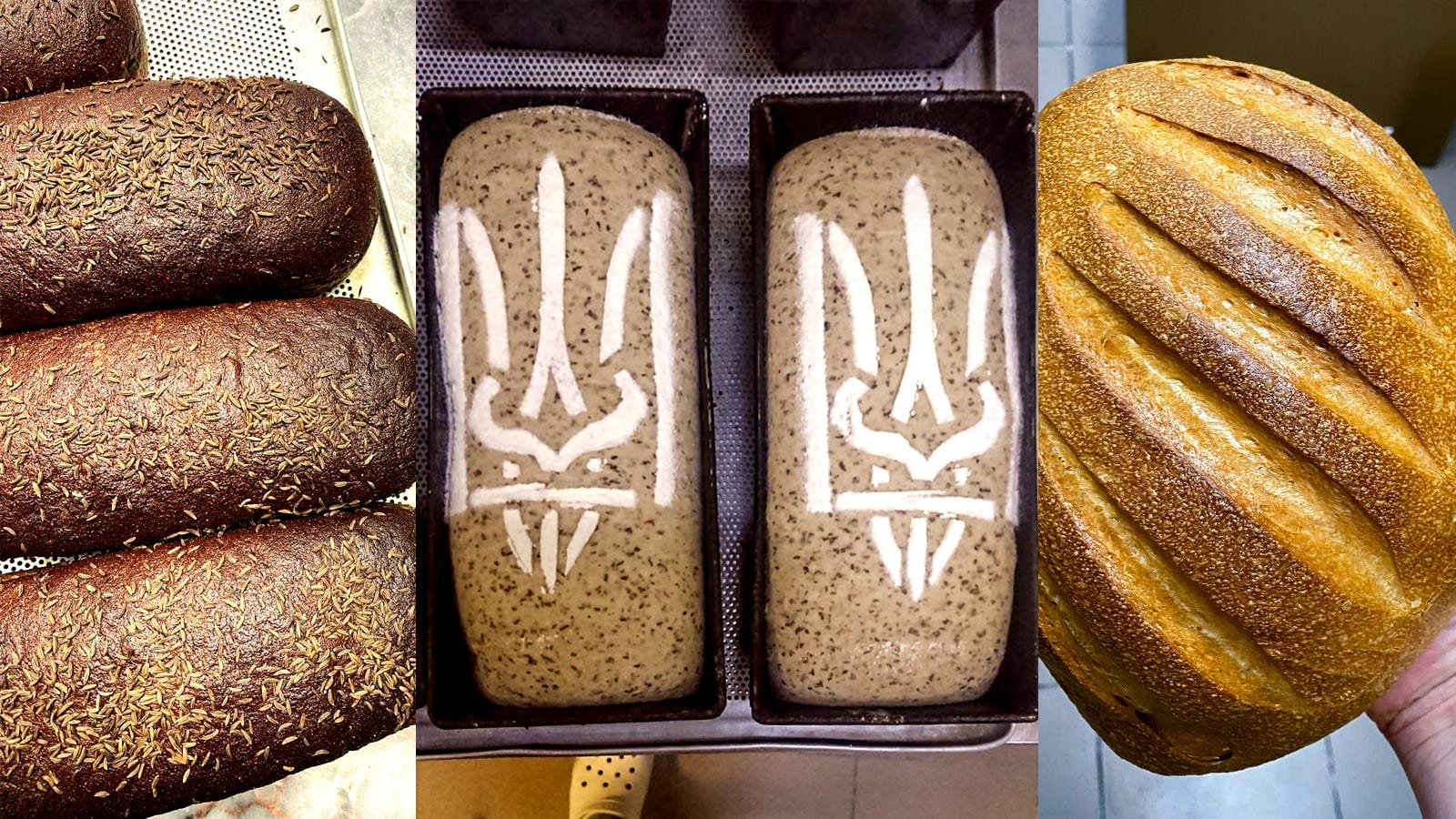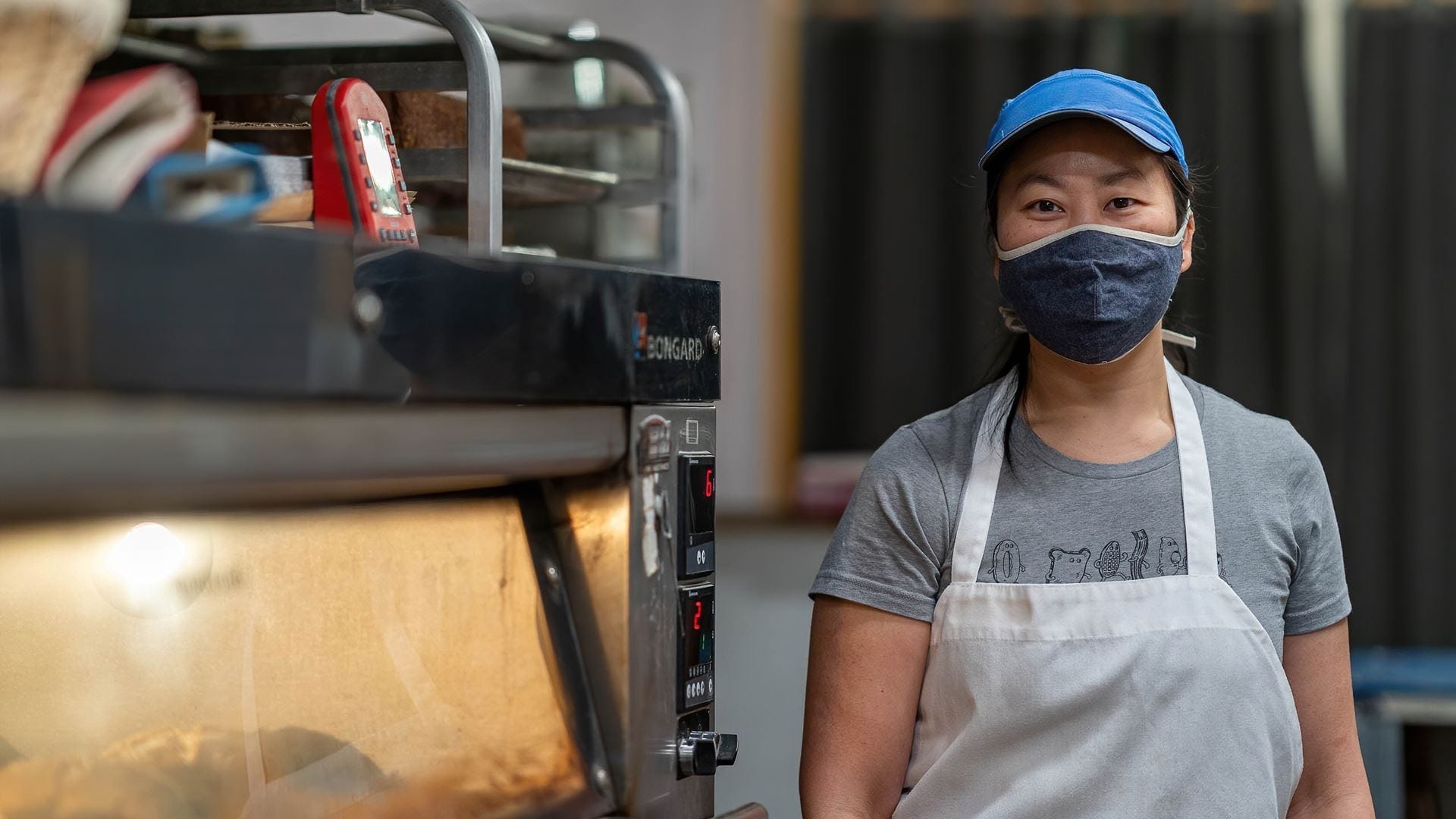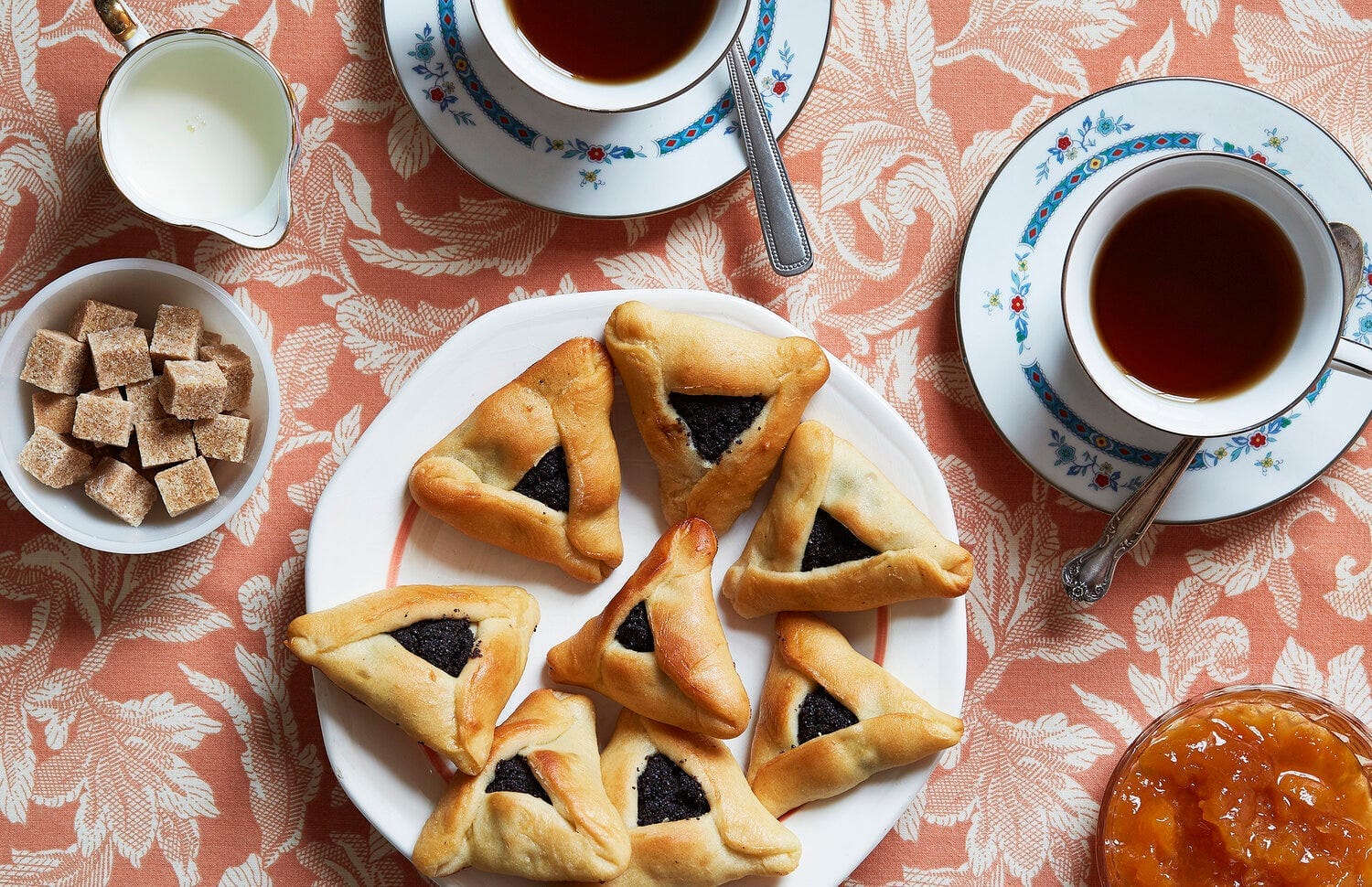Friday Bread Basket 3/18/22

Welcome to the Wordloaf Friday Bread Basket, a weekly roundup of links and items relating to bread, baking, and grain.
Yesterday was the 2nd birthday of the Quarantinystarter, which either you know all about already or you probably have never heard of, but can catch up on here.
And in other personal news, the soda bread fundraiser class I taught on Tuesday raised $750 for World Central Kitchen’s Ukraine relief efforts. If you missed it, I’ll upload the video for purchase soon and will send any future proceeds for that class to Ukraine relief.

My friend Daisy Chow, of the amazing Arlington, MA Breadboard Bakery is teaching a an in-person(!) BBGA class at Johnson & Wales in Providence, RI on 4/1-2 that you might be interested in taking:
Experienced baker/ owner Daisy Chow will share her hard-earned knowledge of incorporating high-quality, local grains throughout bakery production in this exciting and dynamic course. In addition to covering 100% whole wheat sourdough bread, mixed grain sunflower sourdough and a variety of unyeasted pastries, Daisy will teach hand mixing skills and production timing in this comprehensive survey class. Special guest Amber Lambke will join on the first day to share her story of revitalizing the grain growing and milling community in Maine.
Interview with Anna Makievska, founder of Bakehouse artisan bakery in Kyiv

Dan Lepard shared an interview with Ukrainian baker & bakery owner Anna Makievska, of Bakehouse artisan bakery in Kiev, who spoke about what life is like for her bakers these days:
You know, the idea of a safe place is a very insecure prospect right now. For example, yesterday (12th March) all Ukrainians thought that Lviv and the Lviv region is the safest place in Ukraine. It’s in the western part of the Ukraine, very close to the Polish border, and a lot of people from Kyiv are now in Lviv and the region near it. But in the early morning yesterday there was a missile attack just near Lviv, with 9 people killed and more than 60 injured. Right now my husband is in Vinnytsya, it looked like a safe place but a week ago they also had a bomb go off at Vinnytsya airport. Nobody knows where the bomb will be fired tomorrow.
The whole interview is worth your time.

The reinvasion of Ukraine threatens global food supplies
While the war in Ukraine is causing incalculable immediate harm to Ukrainians, it is likely to have impacts well beyond the country’s borders, because of its central importance to the world food supply. And as this BMJ editorial lays out, those effects are going to have a disparate impact on parts of the world already in dire circumstances:
Ukraine has often been described as Europe’s breadbasket. But this seriously understates its importance. It is also a major exporter of other staples, including barley, rapeseed, and sunflower oil. It accounts for about 17% of global corn exports, 12% of wheat, and 30% of sunflower seeds, most turned into oil in Ukrainian factories.
The impact of the war is already apparent. About 25% of wheat and 43% of corn harvested in the most recent season have yet to be exported, and Odessa, Ukraine’s main port, is blockaded. The current winter wheat crop cannot be harvested, and next season’s crops cannot be planted. Other countries might be able to make up some of this shortfall, but it is difficult to see how they could replace it…
…The consequences will be felt by everyone, but some are especially vulnerable. Many Arab countries depend on Ukrainian exports. Lebanon, which lost much of its grain storage capacity in a devastating 2020 explosion, could run out of wheat by mid April. Yemen, stricken by drought and war and almost entirely dependent on imported wheat, faces starvation. Syria too is highly dependent on Ukrainian wheat supplied by the World Food Programme.
Reviving a Yeasted Hamantaschen Recipe Nearly Lost to the Soviet Era

Yesterday was the Jewish holiday of Purim, commemorating a time when the Jewish people living in Persia were saved from extermination. It’s considered one of the more joyous Jewish holidays, and one of its customs is to serve hamantaschen, tri-cornered pastries, filled with poppy or fruit.
A Jewish Food Society post from last year tells the story of one Ukrainian family’s hamantaschen recipe (a yeasted one, which made it of particular interest to me) and how it was nearly lost to history:
When Svetlana was 10 years old, her grandmother Perel, known in the family as Baba Pola, came to live with Svetlana and her parents. “She cooked for every holiday,” Svetlana says. There was matzo ball soup for Passover and honey bread for Rosh Hashanah. For Purim, Perel made poppy seed hamantaschen with a special yeasted dough. Some of the cookies were enjoyed in their home with tea, while others were given out discreetly to neighbors, relatives, and other Jewish friends. “We were very private,” Svetlana says. “We did not advertise [that we were Jewish].”
Svetlana would help her grandmother with the baking, hearing stories of Purim in her grandmother’s hometown of Ruzhyn, a few hours from Kyiv. “[My] grandma always used to say that when she was little when they [were growing] up in Ruzhyn, adults will give them a little bit of money,” she says. “I know here people buy presents for Purim or they make costumes. I never heard about it in the Soviet Union.”

That’s it for this week’s bread basket. I hope you all have a peaceful weekend, and hope that peace returns to Ukraine soon.
—Andrew





Member discussion